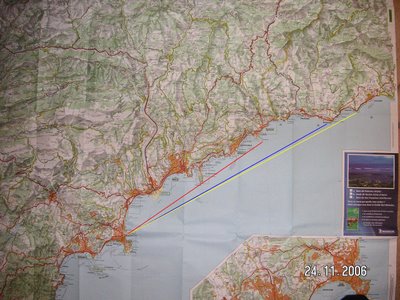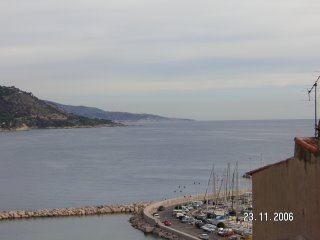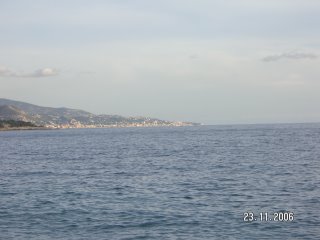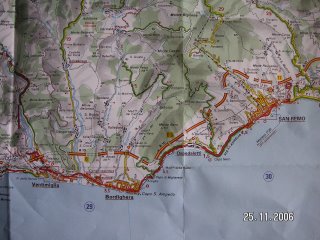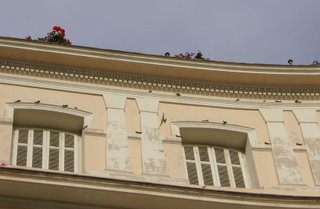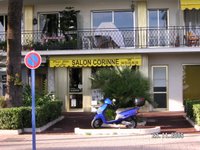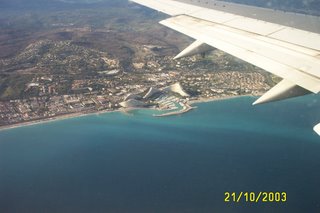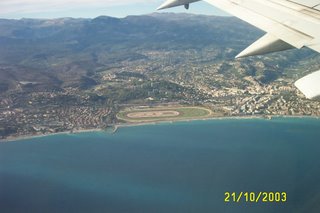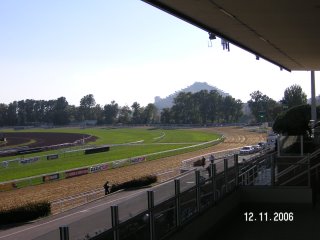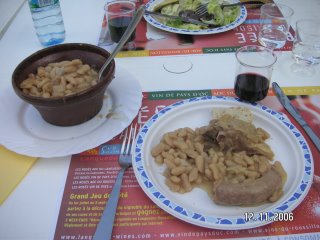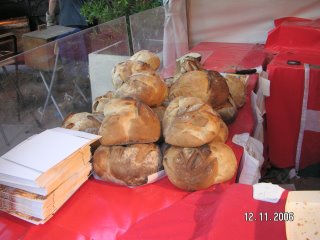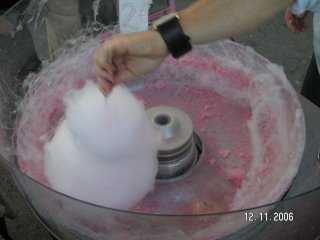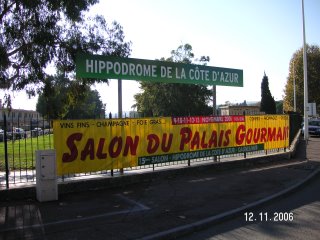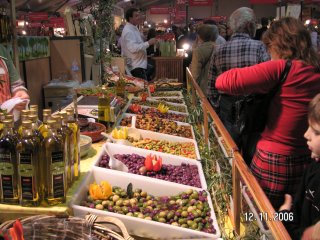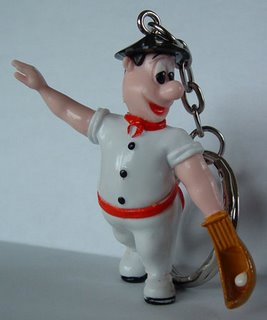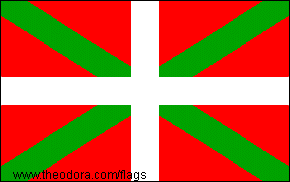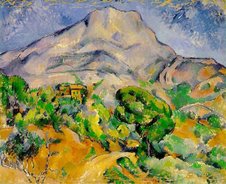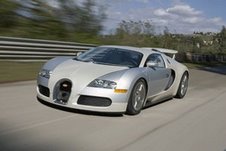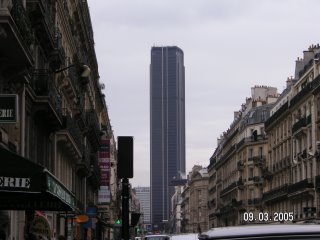
ed. note added 7th Aug 2007: a certain image-search program is wrongly directing folk to this page.
If Montparnasse is not what you were seeking, please scroll down to Search Labels in the right hand margin.
If instead it's the home page you seek, with my latest post, please click on the following link:
Dreams and Daemons Home Page
Enjoy your visit. Comments welcome, even on non-current topics.
Now back to that Tour Montparnasse:
There was an article in yesterday's Independent. Paris considers itself to be short of high rise office space, placing it at a commercial disadvantage to Moscow and London.
(Moscow ? What about Frankfurt ? Or Beijing or Mumbai ?)
So it is planning to add a super-skyscraper to the collection of towers already bristling on the skyline at La Défense. The tallest, to be known as La Phare (The Lighthouse) , scheduled for completion in 2012, will be be 300m high ( almost a 1000 feet in old money), just 20 m shorter than the Eiffel tower.
The central area of Paris is blessedly free (almost) of that scourge of the London skyline – namely the stick-out-like-a -sore-thumb solitary skyscraper. London knows all about those, ones that are hideously out of scale and character with their surroundings.
A year ago, our beloved Deputy PM John Prescott (aka Jabba the Hutt) was reportedly intent on adding some more. Is it too much to hope those plans have been shelved with the loss of his departmental responsibilies for the "environment" .
But there is one exception to the idea of Paris as a harmonious unblighted feast for the eye. It's called the Tour Montparnasse ( see picture above - but don't on any account click, unless you want to enlarge it still further).
This furoncle gets its own entry in Wikipedia, from which some of the following is cribbed.
Built between 1969 and 1972 and 210 metres high, it was ( and may still be ?) the tallest building in the whole of France. But Parisians were so appalled at the sheer brutality of the architecture that it remains to this day a one-off, at least within a 2 mile radius or thereabouts of Notre Dame. All the more recent skyscrapers are further out, notably at La Défense, the Parisian business quarter that is the equivalent of Canary Wharf.
But from the tourist's perspective, the Dark Tower does have one big advantage.

From its enclosed viewing deck (see picture) or windy roof terrace one gets an unbeatable view of Paris, with the bonus that it includes that other iconic tower - the lacy steel one, that Parisians hated at first, but now regard, along with the rest of the world, as a national treasure.
Apologies by the way for the quality of my pictures . They were taken last year, on a grey March day.
Whereas........ if you join the queues to go up the Eiffel Tower, what do you see – the hideous one ! The moral, then, is obvious.
I expect you know that the boxy Arch at La Défence is carefully lined up so that one sees it through the Arc de Triomphe, some 2 miles distant. It's a clever and ambitious idea that, don't you think ? – to create sight- lines that counter the feeling of being trapped in a concrete jungle, even the superior kind of concrete that constitutes the French capital.
The Montparnasse Tour is also said to be lined up with the Eiffel Tower and La Defense. But as sightlines go, it's missing one small ingredient that would lend it impact, like the Champs Elysées/ Ave Charles de Gaulle etc. !
Here are some other pictures from the roof.
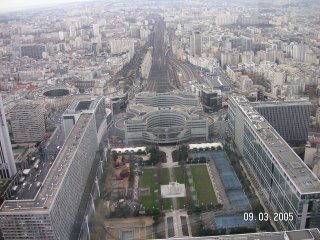
The one above is Montparnasse railway station. This is the one you use if you are going to Britanny. Apparently the station is surrounded by Breton creperie, allegedly there for the benefit of Bretons who might feel homesick within 2 minutes of arriving in the capital.
The next one is looking along that artery known as the Rue de Rennes, (mentioned in Day of the Jackal) towards the Seine and the Louvre.
The last one (above) is the stately and charming Jardin du Luxembourg, with Notre Dame behind.
I was not until yesterday, reading Wikipedia' s entry on the Montparnasse tower that I came to hear of the man dubbed the "incredible spider". It's the Frenchman Alain Robert who scales skyscrapers with nothing more than his hands and his feet. And he's done some 70 of the world's most famous. Britain (typically) paid him to do 1, Canada Square ("Canary Wharf") as a promotional stunt.
What makes things bizarre beyond words is that early falls in his youth broke, or smashed, not only his wrists, ankles and pelvis but left him, as a result of head injuries, with (wait for it) vertigo. Yes, vertigo ! Mind you, I confess to having some confusion as to the precise meaning of the term. Until yesterday, that is, through researching this post.
I had always assumed vertigo to mean " fear of heights" or the symptoms that accompany fear of heights, such as stomach butterflies, paralysis etc. (all of which I get when up a ladder painting bedroom window frames). Well, I was wrong, it seems. Fear of heights is called acrophobia, whereas vertigo is dizziness, disorientation etc , not exactly what you want when climbing, but perhaps not totally incapacitating. In none of the online references is there any mention of fear. Which is just as well for the likes of that spiderman: how could anyone scale a multi-story building with virtually nothing to grip onto if he was scared rigid ? Personally, I don't think I could even bear to watch. Is there a medical term for over-empathising, to the extent that you feel that it's YOU up there, hanging on for dear life, picturing oneself as stawberry jam on the pavement below?

